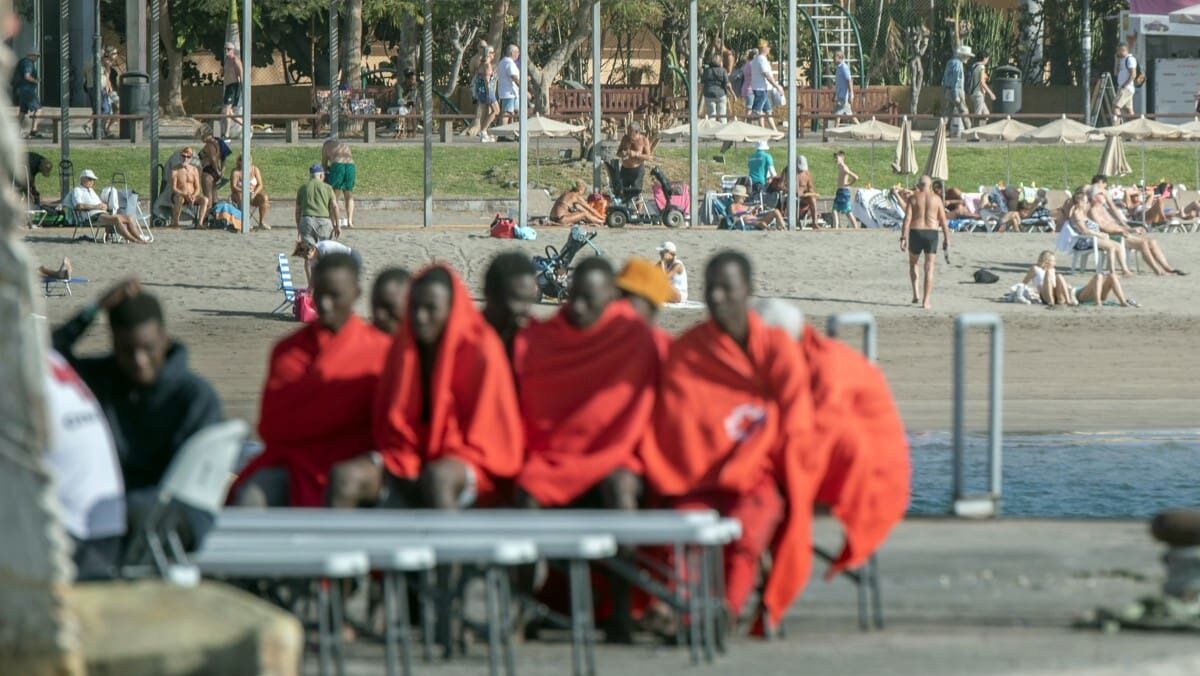
The Canary Islands is facing an unprecedented migration crisis, with the number of illegal migrants set to trump the previous record from last year. In the first five and a half months of this year, almost 19,000 people from Western Africa arrived on the Spanish islands by sea, an increase of 221% compared to the same period in 2023. Last year’s number of migrants—39,900—was a record in itself, an increase of 155% compared to 2022, and the record is likely to be broken again.
According to a recent report by Frontex, the EU’s Border and Coast Guard Agency, there is an increased demand from sub-Saharan migrants seeking to enter the European Union via the Canary Islands, and human smugglers are taking advantage of the situation. Most of the boats carrying the migrants depart from Morocco, Mauritania, and Senegal.
For the small Spanish island group that lies 100 kilometres to the west of Morocco and Western Sahara, with a population of 2.2 million, it is an unbearable situation, as it is finding it difficult to cope with the influx of people. “We don’t have enough resources to take care of them,” says Canarian President Fernando Clavijo.
A report by the German daily Die Welt says migration centres are overcrowded, and the regional government is planning to set up circus tents to accommodate the new arrivals if the central government in Madrid does not help.
The situation is made even more difficult by the fact that the proportion of minors is continuously increasing. There are currently 6,000 underage migrants residing in the Canary Islands, and the arrival of another 11,000 is expected over the coming months. While most migrants arriving in the Canary Islands are given shelter in areas throughout Spain, such relocations are not allowed for minors. Spain is obliged by international law to take special care of children, giving them extra support to find residency and education, making deportation virtually impossible.
The fact that many migrants arrive without any form of identification, makes it harder for authorities to certify whether migrants claiming to be minors are actually underage.
Other Spanish regions are unwilling to accommodate many of these migrants, therefore, the Socialist government in Madrid is introducing a ‘compulsory solidarity’ system, according to which minors would be distributed among the different regions and the Canary Islands would only be responsible for the ‘temporary custody’ of the minors.
The opposition right-wing VOX party believes the solution to the problem should not be redistribution, but to finally abolish the “pull factor” that motivates migrants to make the perilous journey. According to a report by ‘migration rights’ group Walking Borders, nearly 5,000 migrants have died at sea in the first five months of 2024 trying to reach the Canary Islands. The Atlantic route is said to be one of the most dangerous routes for migrants because of the ocean’s rough weather conditions.
“We see that they are coming here at an increasingly younger age. They probably heard that they then have a guarantee of achieving their goal: to get a residence permit, a work permit, training or, above all, work,” Gabriel Orihuela, who runs a shelter, told Euronews.
